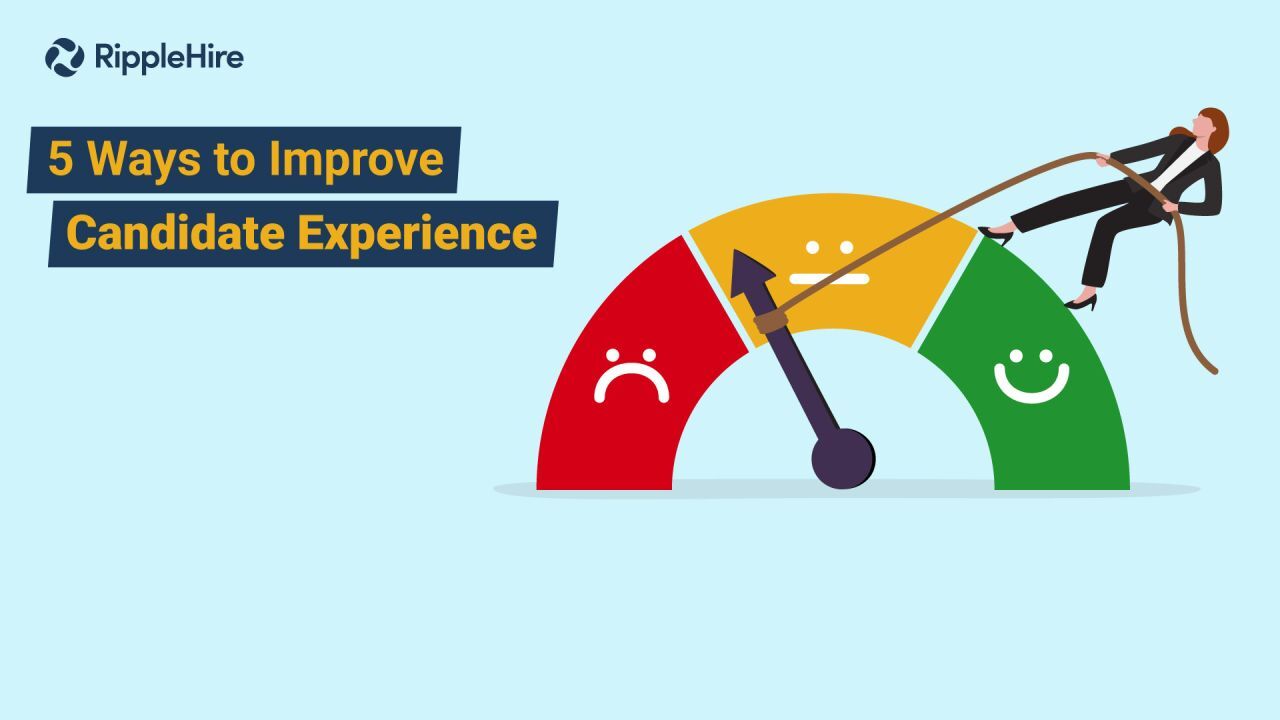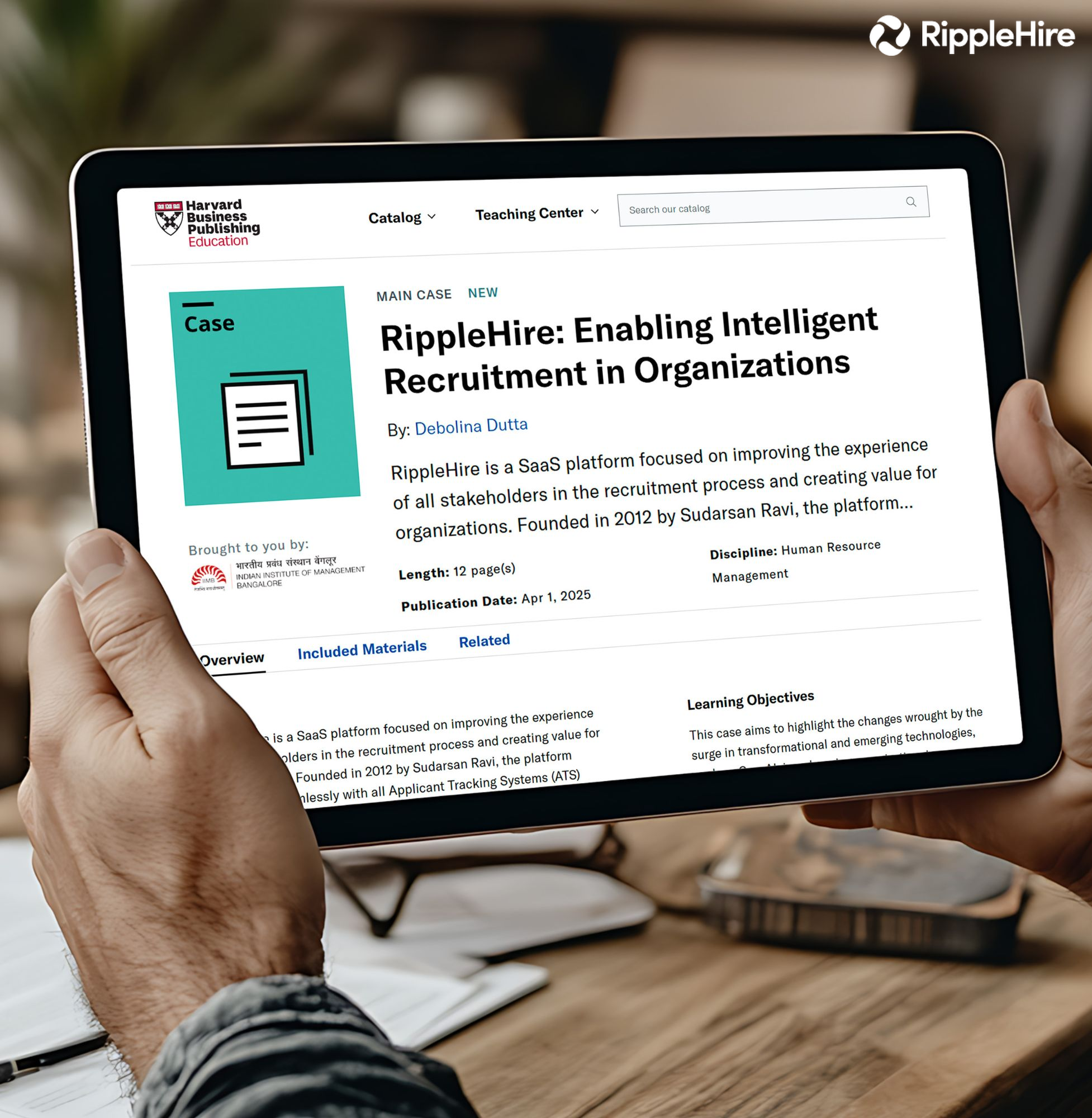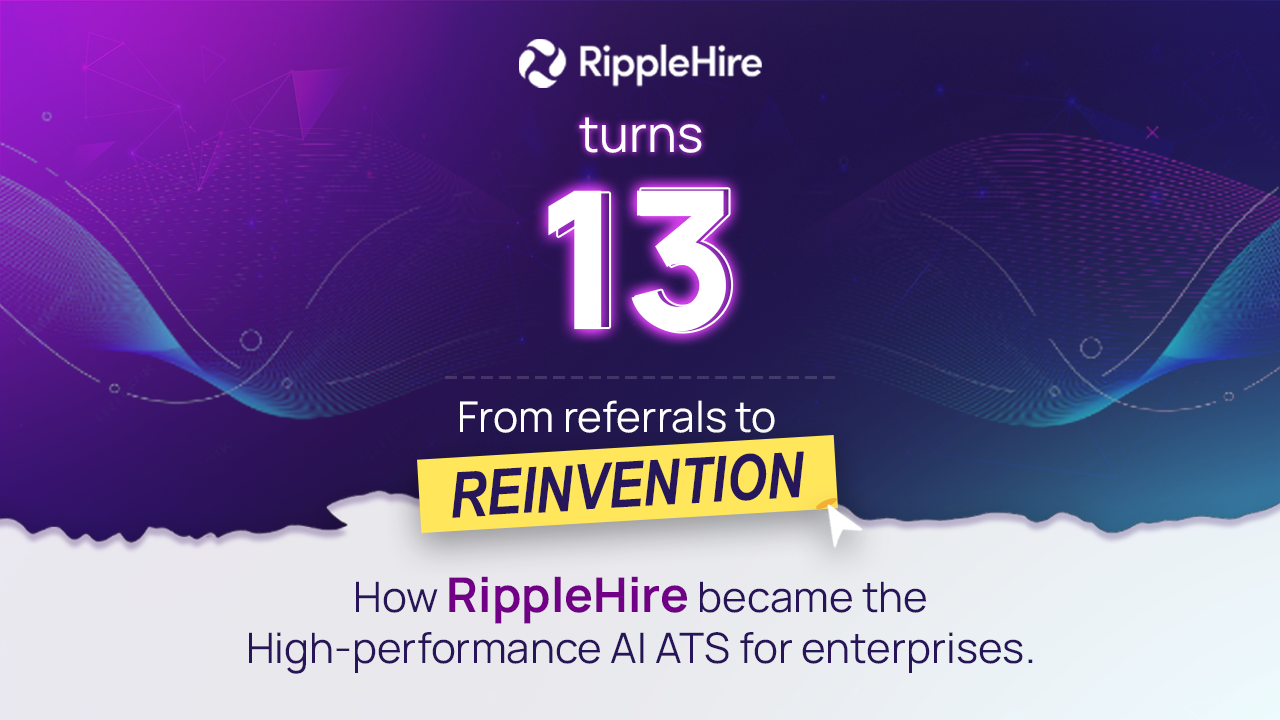How to Improve Candidate Experience: 5 Proven Strategies for Better Hiring Outcomes
Candidates that have an unpleasant interview experience are unlikely to take up your offer if selected, even if the job offer is a great one. And even if they do accept your job offer and become your employees, they are far more likely to carry the memory of a poor interview experience for a while. This will have an adverse impact on their commitment and performance levels as well.
Whether such unhappy candidates stay long with your company or not, the harsh truth is that they will never do their best.
The best way to ensure that this situation is avoided is to take the right steps to improve candidate experience.
5 Strategies To Improve Candidate Experience
Here we cover the top 5 ways to improve candidate experience and earn their loyalty as they eventually become your employees.
Post a clear job description
It all starts with the way you plan and post the job description. Whether it is on a job portal, social media, or just your company website, the quality of the job description is a decisive factor that determines the quality of candidates you will attract.
Candidates nowadays value their time and skill higher than they ever did, and they are not going to contact a company whose job descriptions are vague or hard to understand.
An ideal job description should present the relevant details such as the type of work, salary range for the position, skills and experience required, etc.
As a part of your job description, it’s very important to give all the essential details about your hiring process as well. Try to answer the below questions with precision:
1) How many stages are there in ther interview process?
2) How much time is each stage going to take?
3) How long will the candidate have to wait for a decision?
4) What will be the next steps if the candidate is selected?
Have an attractive company website
Interested candidates will in all probability check out your company’s information. If they don’t find the details they want on your company’s website, they will turn to website that offer reviews about your company and will rely on the reviews there, which will be a mixture of good and bad. And the bad reviews there are very likely to repel great candidates.
Avoid this pitfall by having attractive content about the company on your website, but that which is relevant to the candidates. A good way to accomplish this is to have an easily accessible and dedicated careers page on your website, which will ensure that the candidates get the information they want fast and without having to surf all over the internet.
Make the application process hassle-free
The application form itself should be a simple one consisting of not too many fields. But it should also ask for enough details to assess the candidate’s skills and capabilities objectively.
Avoid asking for personal details such as ethnicity, religion, hobbies, marital status, and pretty much everything that is not relevant to the performance on the job.
Gender of the candidate can be asked, because the job role itself might require a male or female candidate. For example, if you are hiring for a male nurse for a male patient, it’s only fair to ask the candidate’s gender.
A good way to know the suitability of the candidate is to know whether they have understood the job description and are clear about what value they would bring to the company.
Pro tip: Have a free text box that encourages the candidates to enter their expectations from the job.
Treat the candidates fairly through the interview
Undergoing multiple interviews in itself can be quite a stressful experience from the candidates’ viewpoint. Oftentimes, candidates that are actively searching for a job prepare for and attend more than one interview in a single week.
As the recruiter, you may be facing your own challenges, but you need to be fair to the candidates as well. Show that you respect their time, and the effort they are putting in to prepare for and attend the interview for a job with your company.
Avoid being condescending, and add a touch of empathy to gain the candidate’s respect and trust. Don’t ask irrelevant questions that will make the candidate think that you are biased. For example, there’s no point in drilling too deep into why the candidate is looking for a change.
After all, you are hiring for his skill and you want him to join your company, right? You don’t really want the candidate to question her own decision to change the job, because then, she is never going to join your company.
Send prompt follow up communications
Even the rejected candidates have the right to know the outcome of the interview. Recruiters that don’t communicate rejection to the candidates proactively, (or worse, avoid the candidates’ attempts to ask for the outcome), will end up damaging the reputation of the organization. Be prompt and professional in communicating the rejection. This will ensure that if you wish to consider those candidates for a future opening, they should be happy to appear for an interview once again.
Nurturing potential future candidates, even if they are rejected for the current job opening, will ensure that you add to your talent pool.
If the candidate is selected, communicate that professionally as well. Show that you are excitedly looking forward to have them become your employees, and let them know the next steps involved in the recruitment process. And follow through those steps on a timely basis.
Earning Employee Loyalty Through Improved Candidate Experience
Of course, the above five strategies will contribute heavily to ensuring that improved candidate experience drives the quality of hiring decisions. And here are some bonus tips to support these strategies:
1) Leverage an employee referral program to get good quality referrals from happy employees.
2) Invest in a good talent acquisition cloud to support and optimize your recruiting efforts.
3) Use techniques like blind hiring and inclusive recruitment to boost diversity in the workforce.
Armed with this knowledge, it’s time to put it into action and make great hiring decisions. These strategies will empower you, but the actual path to becoming a talent acquisition superhero is for you to walk. Good luck with earning the trust and loyalty of high quality candidates using these tips!
FAQs:
1. Why is candidate experience important in recruitment?
Candidate experience directly impacts whether a candidate accepts your offer, joins your company, and how engaged they are once onboarded. A poor experience can lead to drop-offs, lower performance, or negative brand perception.
2. How does a clear job description improve candidate experience?
A well-written, transparent job description sets the right expectations from the beginning—about responsibilities, interview stages, timelines, and compensation. It reduces confusion and increases the chances of attracting serious, well-matched applicants.
3. What role does a careers page play in candidate experience?
A dedicated careers page helps candidates find all relevant information—company culture, open roles, hiring process, testimonials—in one place, making their research easier and building trust.
4. What should be avoided in the job application process?
Avoid lengthy forms, irrelevant personal questions, and unclear instructions. Stick to job-relevant queries and create a flow that’s intuitive and respectful of the candidate’s time.
5. How should recruiters handle candidate communication?
Always communicate promptly, especially after interviews—whether it’s a rejection or an offer. Silence or delay reflects poorly on the employer brand. Clear, timely updates improve your reputation even with non-selected candidates.
6. Can candidate experience affect employee retention?
Yes. A positive candidate experience often leads to better employee engagement and loyalty post-joining. It sets the tone for what candidates can expect from your work culture.
7. How can technology improve candidate experience?
Tools like RippleHire’s high-performance ATS automate personalized communication, streamline interviews, and make application tracking seamless—helping recruiters deliver a consistent and human candidate journey.
8. What’s the link between employee referrals and candidate experience?
Happy employees are more likely to refer high-quality talent. And referred candidates typically trust the organization more, resulting in smoother hiring and onboarding experiences.
















